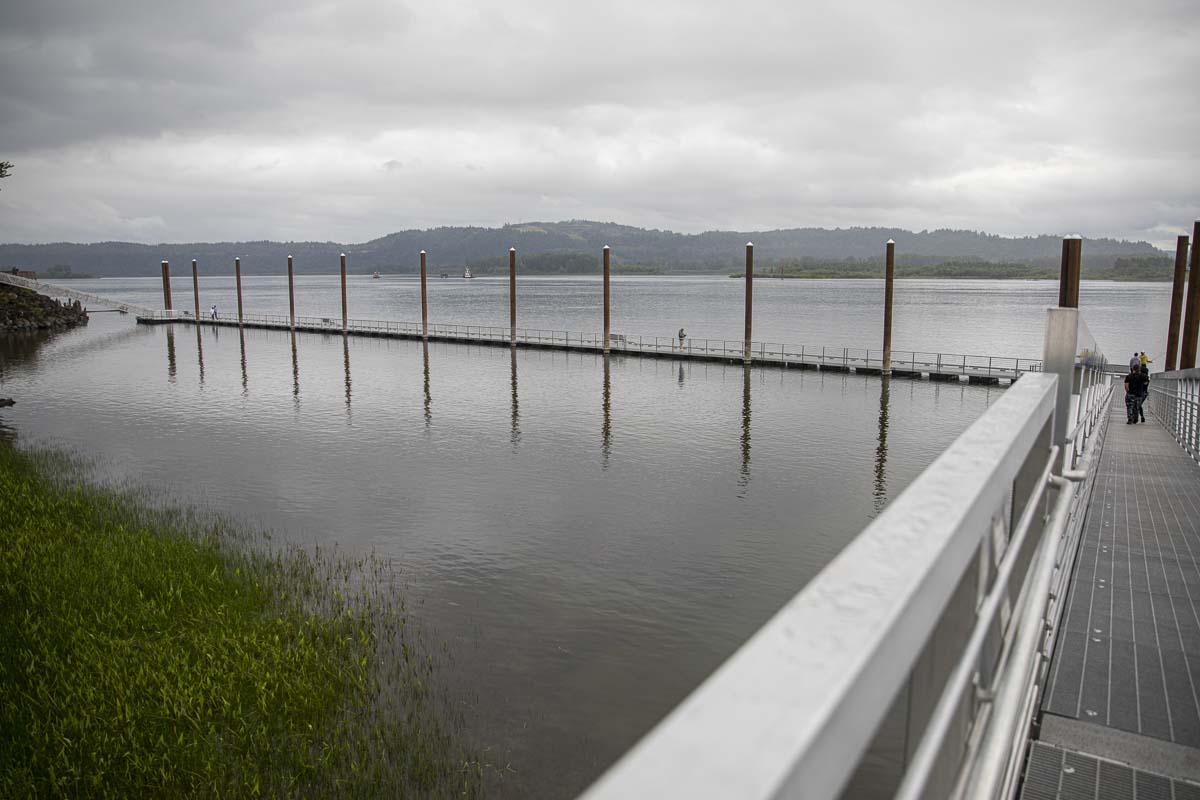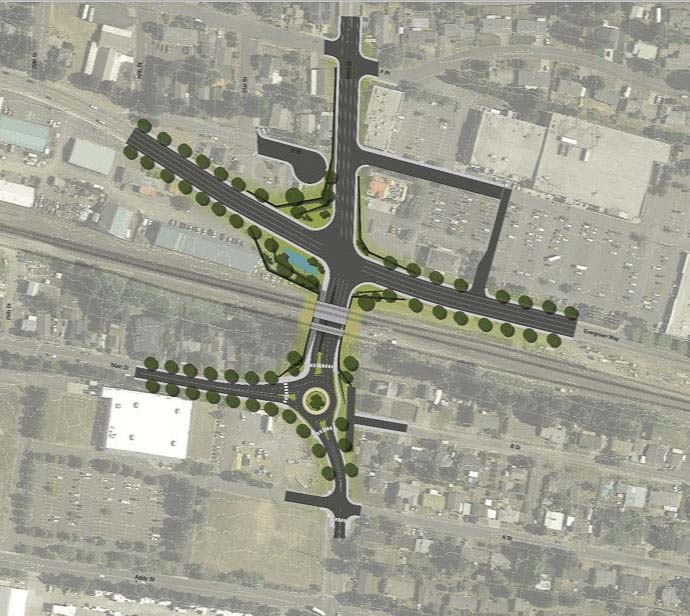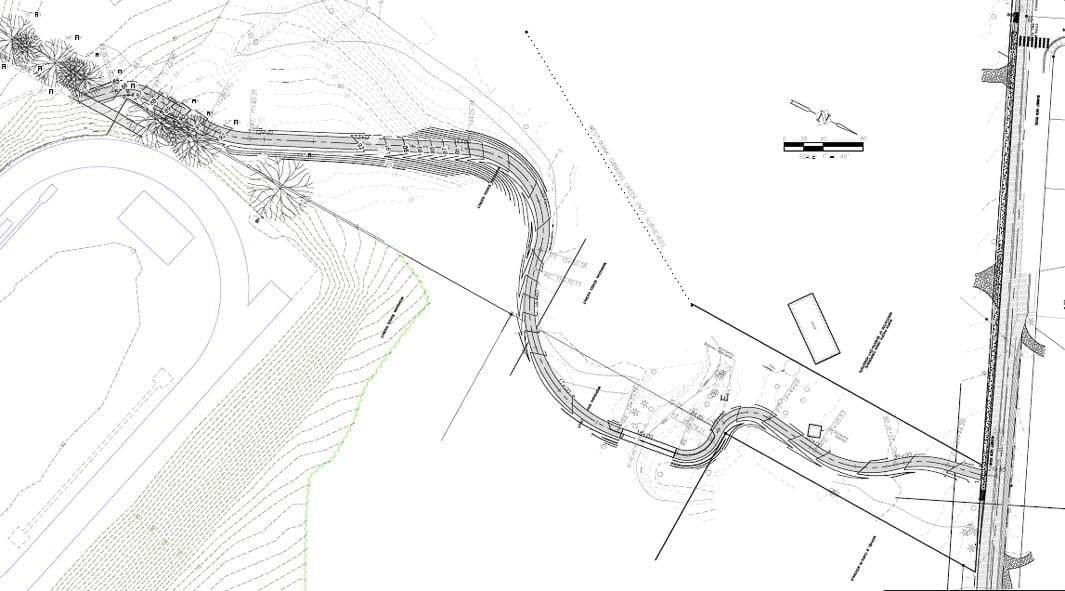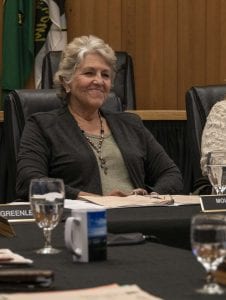Capital improvement projects for the city numerous and focused
WASHOUGAL — There’s quite a bit happening in Clark County’s fourth largest city. Washougal’s capital improvement projects for 2020 are now moving into action and they cover everything from public bike tracks to drinking water for future residents.

Now viewable in a specific page on the city’s newly redone main website, each project either launched on Jan. 1, 2020, is being carried over from 2019 or is now listed as complete.
Every capital improvement project the city undertakes is a part of the city’s Capital Improvement Plan (CIP) which provides funding for large-scale, high-priority endeavors.
Community facilities and parks
Projects for community infrastructure are roughly an even mix of ongoing and new this year. Most notably is the remodel of the city’s Civic Center adjacent to City Hall.
“We’ve just been agonizing over the completion of the Civic Center siding and windows and upgrades and everything,” said Washougal Mayor Molly Coston. “It’s been lingering so long, but you know, it hasn’t been upgraded in 40 years. The perspective of the city is although we’d like to have it finished, we want to do it right.”
The remodel was started in 2019 and is expected to be completed sometime in February 2020. Included in the project are the installation of new windows and siding, as well as work on city hall’s restrooms and break areas.
The center is used year-round as a hub for community events such as Meals On Wheels and the cold weather shelter during the winter. The total cost for the remodel is $750,000.
In the realm of parks and outdoor amenities, one of the city’s largest and longest undertakings will likely be completed, or at least 90 percent complete in 2020: Schmid Ball Fields.
“We thought we were going to be able to do it in five years, you know, put a whole complex of ball fields out there, and of course, we ran into challenges,” Coston said. “Now I’m hoping that we’ll be able to start that project. We’re well underway. We have a lot of planning and design in place and the softball league is very committed to helping us achieve our goals this year.”

Conceptualized in the early 2000s, the fields have been contracted and expanded little by little, and are now entering their third phase. This final step will include the construction of the third field, making the site viable for tournaments.
A parking lot, additional driveway onto Evergreen Way, lighting, as well as concessions and permanent restrooms will all be parts of phase three. The project will close out at a cost of approximately $2.6 million over the course of close to 20 years.
“The property is the school district property. We’ve been fortunate to have a very robust, healthy relationship with them over all this time, and I know that’ll continue,” Coston said. “We will provide the funding for the ball fields, they’ll provide the facilities and then we sort of jointly share maintenance.”
Perhaps the most unique of all current projects is the completion of the second phase of the Hamlik Park Bike Pump Track. The track is already partially open, with the second half powered in part by volunteers and volunteer dollars.
“This has been on the books for a couple of years now, and I hope that 2020 will see finality to this where we can do this because there’s some real champions in our community to make this happen,” said Coston.
Pump tracks are essentially tight circuits consisting of many rolling hills and banked turns usually constructed out of wooden planks, dirt mounds or concrete. The idea is to no pedal and instead gain speed and momentum by “pumping” the bike up and down on the ups and downs.
The track is aimed at mid-teens with an emphasis on providing an outdoor recreation opportunity as well as a place to teach bike safety and do training. The final and maximum expenditure for the track is $32,000 with the only remaining expense being maintenance.
“I know it will be very beneficial not only for kids in our area, but for kids all over the area to come out and do some competitions and challenges and bike safety things,” said Coston.
The completion of the majority of the Steamboat Landing Dock occured in 2019, with the final demolition of the upper viewing platform to be completed this year. When all is said and done, the project will have cost $1.5 million.
Finally, with the $20,000 donation from the Hutchinson family, unknown graves in the Historic Cemetery will be labeled with the use of ground penetrating radar.
Transportation and trails
The largest elements in this category carry over from 2019, with the 32nd Street underpass and the 27th Street grade separation. Analysis for the work at 27th Street has begun and is expected to be complete by the end of 2020.

Once the separation is mapped out, including design and permitting of the 32nd Street underpass location, construction on the underpass is expected to commence. Analysis has been allocated $500,000 with the cost of the underpass construction yet to be determined.
When it comes to travel-by-foot, new and existing trail systems are getting a jumpstart. The brand new Jemtegaard Trail has entered construction and will extend north of Jemtegaard Elementary School to Sunset View Road, where it will turn into a sidewalk.

The trail will be fully lit and connect several neighborhoods. It is expected to be completed by the end of 2020 and will cost $750,000.
The extensive Columbia River Trail System will receive another link in the chain with the connection of the new Port of Camas-Washougal trail going to Steamboat Landing. The section to be installed is 0.6 miles long and shifts from six feet wide to 10 feet wide as it passes South A Street.
The trail system is part of the larger network that can be followed all the way to Steigerwald Wildlife Refuge east of Washougal. The project is expected to be finished in September of 2020, and will close out at $1.9 million from city funds and a state appropriation.
In addition, the area surrounding Hathaway Elementary school will be made safer with installation of sidewalks on 22nd, 23rd and F Streets. This project is expected to be completed in March of 2020 and will cost $242,550 with partial funding supplied by the Community Development Block Grant (CDBG).
Water and waste treatment
When it comes to managing water, Washougal is making attempts to modernize and expand its infrastructure and policies. The city’s Water Master Plan which was launched at the start of 2020, is expected to guide the aforementioned efforts. Its development will cost $30,000.
In the spirit of efficiency, Washougal is moving to replace their water meters with Automated Meter Reading (AMR). This over $1 million endeavour is aimed at, “… allowing city staff to focus on other areas within their department, which supports the Core Services pillar (focusing on cost-effective operations and maintenance, and continuous improvement in customer service, processes, and procedures).”
AMR is expected to be widely installed by the end of 2020.
With growth projected on the horizon, the city is also planning for higher demand with the installation of the Woodburn Hill Transmission Line Design. The project would expand the water mains capacities for drinking water and fire flow.
“We know that we’re going to see a lot of growth up there,” Coston said. “It may happen in 2020, but we’re looking really pretty much at a 10 year plan from 2020 to 2030. So it gives us a few years to plan for it, and I think we’re doing the right thing in planning for it before it hits us square in the face.”
The nearly $900,000 project began with Jan. 1, 2020 and is expected to be completed by Dec. of 2020.
After completing their biosolids dredge and haul project in 2019, Washougal is moving on to constructing their own biosolids handling facility. This facility would take in solids collected from wastewater treatment and process them onsite. The facility will cost roughly $2.4 million.
In lockstep with the biosolids facility, the city is expecting to upgrade their wastewater management with an anoxic selector, which would allow for much needed increase in capacity, according to the city. The selector is budgeted at just under $1 million.
Finally, the city plans to relocate or upgrade four pump stations across Washougal. Relocation will cost $265,225, with each upgrade costing between $4,000 and $35,000.
“We’re going to try and work a lot harder at engaging the community before things become an issue,” Coston said of the new year overall. “20 years ago, it was pretty easy. You would put something in the paper, or you would hold a town hall, but these days, those really may not be the best ways to engage community.”





